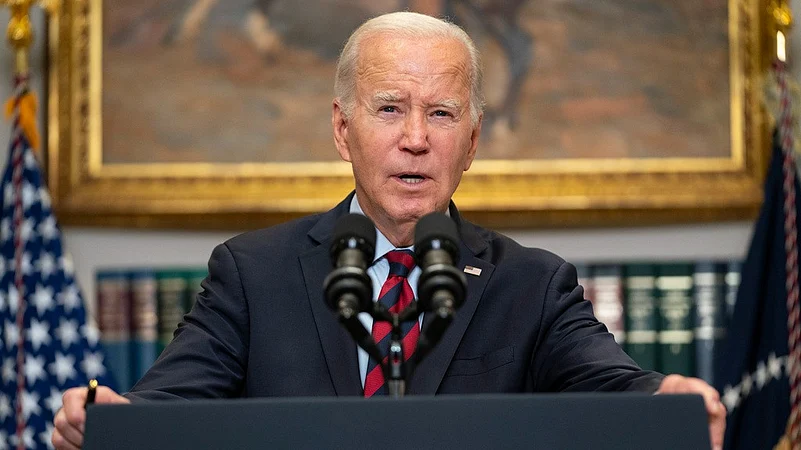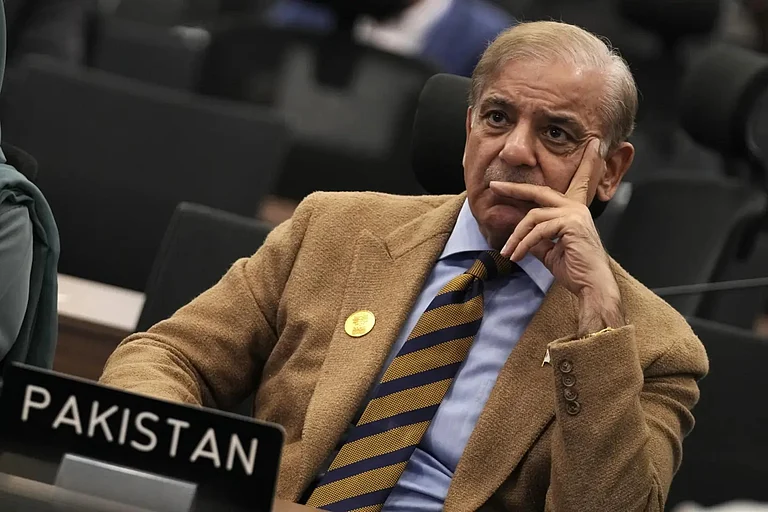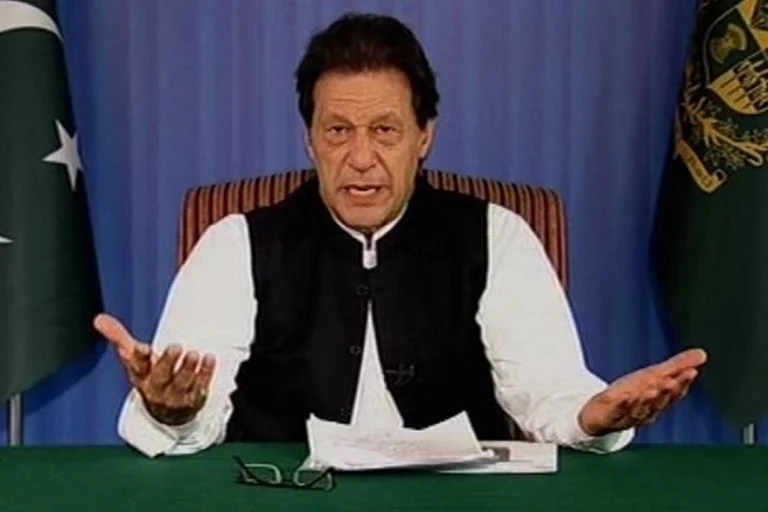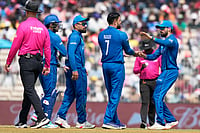Marking the first official communication with a Pakistani premier during his tenure, US President Joe Biden has dashed off a letter to Prime Minister Shehbaz Sharif expressing continuous support and highlighted that the ties between the two nations are critical for bilateral and regional peace and security.
After assuming office in January 2021, President Biden neither telephoned former prime minister Imran Khan after his election victory nor spoke to Sharif when he succeeded Khan in April 2022, The Express Tribune said on Friday.
Sharif took oath as the country’s prime minister for a second time earlier this month after a controversial election that his rival and former prime minister Imran Khan dubbed as “rigged.”
Khan, who is the founder of Pakistan Tehreek-e-Insaf (PTI) party, had also openly accused the US of orchestrating his downfall after he was removed through a vote of no-confidence in April 2022.
Though more than 90 independent candidates backed by the PTI won the maximum number of seats in the National Assembly, the Pakistan Muslim League-Nawaz (PML-N) led by former prime minister Nawaz Sharif and the Pakistan Peoples Party (PPP) led by former foreign minister Bilawal Bhutto struck a post-poll deal and formed a coalition government in the country.
PML-N supremo’s younger brother Shehbaz Sharif became the prime minister while PPP’s co-chairman Asif Ali Zardari became the President, both for second term, as part of the quid-pro-quo deal.
According to the contents of Biden’s letter, shared by the US Embassy here, “The enduring partnership between our nations remains critical to ensuring the security of our people — and people around the world —and the United States will continue to stand with Pakistan to tackle the most pressing global and regional challenges of our time.”
Biden said the support includes advancing “our shared vision for a future of greater health, security, economic growth, and access to education for all.”
He added that through the US-Pakistan Green Alliance framework, the two nations would continue strengthening their climate resilience, supporting sustainable agriculture and water management and advancing Pakistan’s recovery from the devastating floods of 2022.
He wrote that the United States remains “committed to working with Pakistan to protect human rights and promote progress.”
“Together, we will continue to forge a strong partnership between our nations and a close bond between our people,” the letter concluded.
The two sides are trying to reset ties as Pakistan on March 21 said that the concerns a top US official raised over last month's general elections and its outcome were due to a “misunderstanding” of its internal situation and election laws.
Foreign Office spokesperson Mumtaz Zahra Baloch, who spoke about the "misunderstanding of Pakistan's internal situation" while responding to queries about the remarks by US Assistant Secretary of State Donald Lu at a congressional hearing that if the Election Commission of Pakistan (ECP) failed to investigate allegations of irregularities in the February 8 elections, it will “retard” America’s relationship with Pakistan.
Before that on March 15, US Ambassador Donald Blome said that Pakistan was considered an “important partner” and expressed hope in working with the newly-elected government to continue building stronger bilateral ties.
Earlier, barely two days after the February 8 polls, Indian-American Congressman Ro Khanna had led US lawmakers in alleging that the Pakistani military has been “rigging” the just-held general elections to “prop up” its candidate and deny the victory secured by jailed former prime minister Imran Khan.
On February 15, Khan sought the help of the US with a special message to Washington that it should play a role and voice concern about his country's “rigged” general elections.
It was around that same date that the White House said it is concerned about the reports of intimidation and suppression of voters during the recently held general elections in Pakistan and is closely watching the situation there while a US lawmaker urged the State Department to delay recognising the winner.
“We're concerned, and we share our concerns about some of the reports that we've heard coming out of Pakistan in terms of intimidation, voter suppression, that kind of thing. And so, we are watching this very, very closely,” said John Kirby, Coordinator for Strategic Communications at the National Security Council at the White House.


























